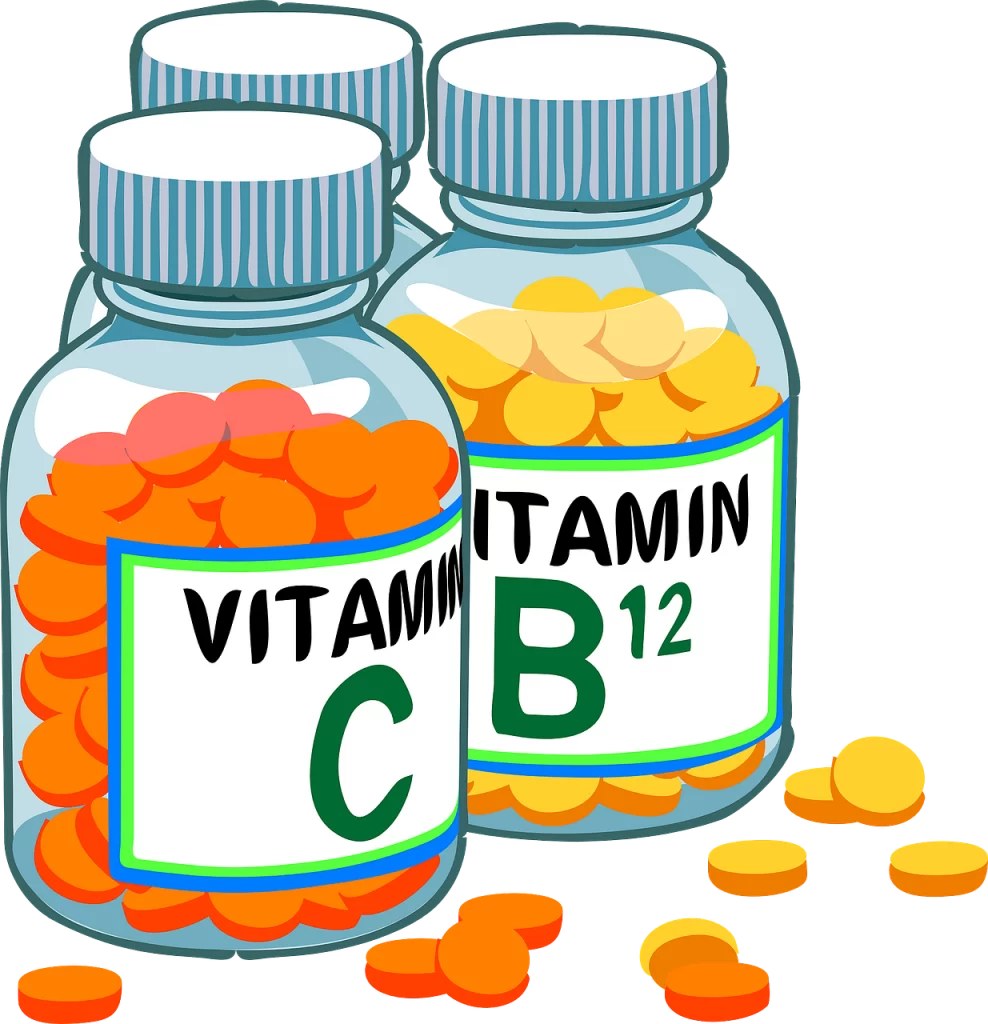
Vitamins and minerals are organic compounds that the body needs in small amounts to perform a variety of metabolic processes. There are 13 essential vitamins, vitamins A, C, D, E, K, and B vitamins. Each vitamin has a different role to play. Just like vitamins, minerals are also imperative for the body’s functioning.
People usually fulfill their dietary requirements for vitamins and minerals from their food. You can also take supplements to make up for any deficiency. However, it’s important to note that overconsumption of vitamins and minerals can cause toxicity.
Vitamin A
Vitamin A bolsters the immune system’s functioning so it can fight off infection. It improves vision and helps prevent eye conditions.
Vitamin B
B vitamins ensure the body cells work properly and are imperative for good health and overall well-being.
- Vitamin B1 (Thiamin) turns food into energy
- Vitamin B2 (Riboflavin) is vital for the growth and development of cells
- Vitamin B3 (Niacin) protects the skin and tissues
- Vitamin B6 (Pyridoxine) helps with brain development and keeping the immune system healthy
- Vitamin B7 (Biotin) metabolizes carbohydrates and amino acids, and ensures skin, nail and hair health
- Vitamin B9 (Folic acid) aids red blood cell formation, especially for healthy growth and development of the fetus
Vitamin C
It protects the cells against free radicals, lowering risk of infection. It promotes the growth, development and repair of body tissues.
Vitamin D
It aids the absorption and retention of calcium and phosphorus, promoting bone health.
Vitamin E
It acts as an antioxidant, preventing free-radical cell damage.
Vitamin K
It makes proteins responsible for blood clotting and health bone formation.
Calcium
This mineral helps strengthen bones, regulate heart and muscle function, and aid with blood clotting and wound healing.
Iron
Iron makes red blood cells that carry oxygen around the body.
Zinc
It helps with immune system and metabolic functioning. It also helps with wound healing
Potassium
It regulates the fluid levels outside cells for normal bodily functioning. It also helps lower blood pressure.
Iodine
It creates thyroid hormones that regulate the metabolic rate.
Magnesium
It aids 300 biochemical processes in the body. It regulates muscle and nerve function, maintains blood sugar levels and helps make proteins and DNA.
Amita Vadlamudi, author of this article also maintains the following sites: